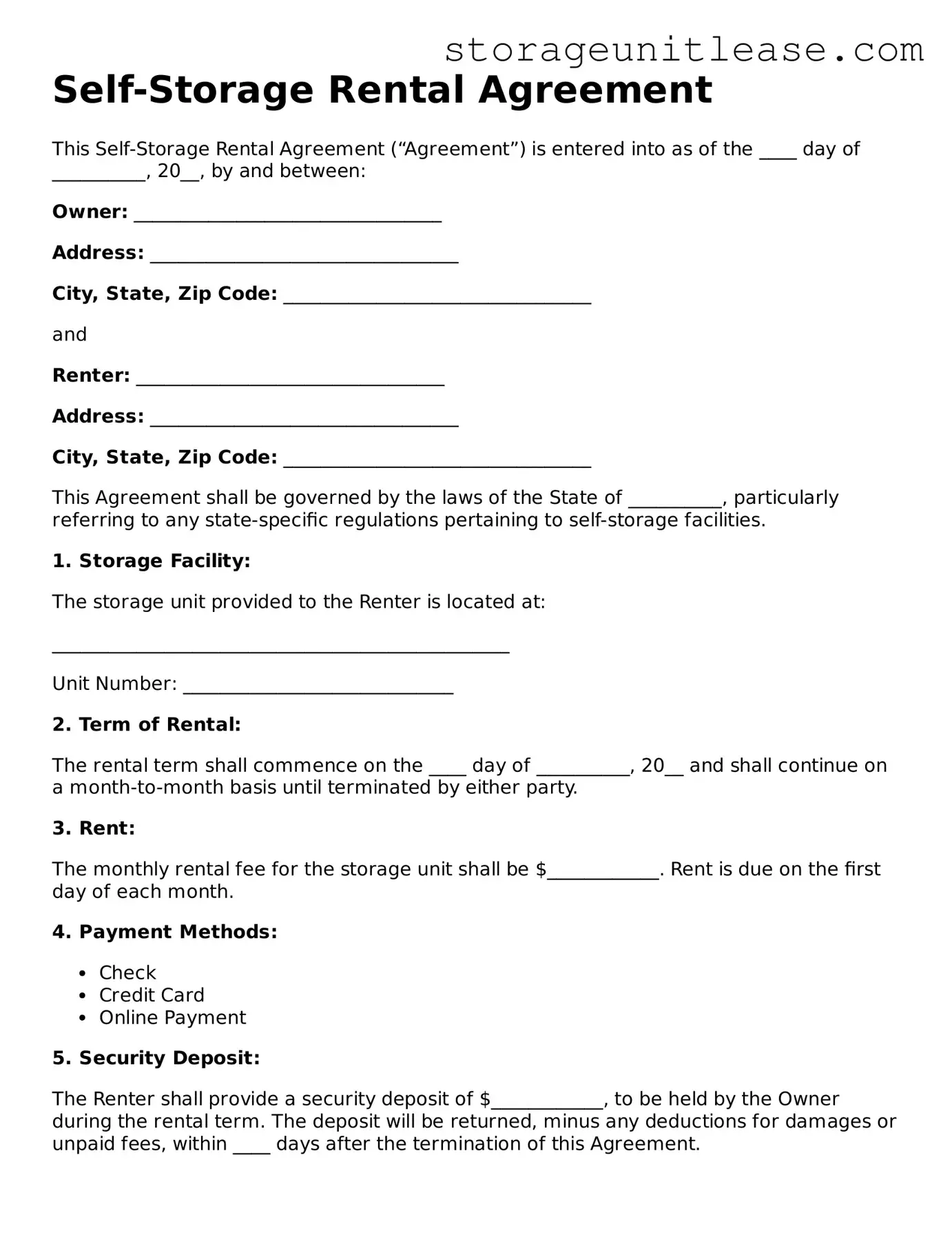The Lease Agreement is a document that outlines the terms under which one party agrees to rent property from another party. Similar to a Self-Storage Rental Agreement, it specifies the rental period, payment terms, and responsibilities of both the landlord and tenant. Both agreements protect the interests of the parties involved and provide a clear framework for resolving disputes. They often include clauses related to maintenance, security deposits, and termination conditions.
To further illustrate the importance of properly documenting agreements, vehicle owners should consider using a Legal PDF Documents to create a Vehicle Release of Liability form, which protects them from claims related to damages or injuries after transferring their vehicle.
The Commercial Lease Agreement is designed for businesses renting commercial space. Like the Self-Storage Rental Agreement, it details the rental terms, including duration and payment obligations. Both documents require the parties to adhere to specific rules and regulations regarding the use of the space. They may also include provisions for property maintenance and liability, ensuring that both parties understand their responsibilities.
The Rental Agreement for Residential Properties is similar in nature to the Self-Storage Rental Agreement but focuses on residential units. It includes terms regarding the rental period, payment, and tenant obligations. Both documents aim to establish a clear understanding between the parties involved. They also address issues like security deposits and maintenance responsibilities, ensuring that tenants know what is expected of them.
The Equipment Rental Agreement is used when one party rents equipment from another. This document, like the Self-Storage Rental Agreement, outlines the rental period, fees, and responsibilities of both parties. Both agreements serve to protect the interests of the lender and borrower, ensuring that the equipment is used properly and returned in good condition. They may also include terms regarding damages and insurance coverage.
The Vehicle Rental Agreement governs the rental of vehicles. Similar to the Self-Storage Rental Agreement, it sets forth the terms of the rental, including duration and payment. Both documents require the renter to follow specific rules, such as mileage limits and maintenance responsibilities. They also include clauses related to insurance and liability, ensuring that both parties are protected in case of accidents or damages.
The Lease for Agricultural Land is another document that shares similarities with the Self-Storage Rental Agreement. It outlines the terms under which land is rented for farming purposes. Like the Self-Storage Rental Agreement, it includes details on payment and duration, as well as responsibilities regarding land use and maintenance. Both agreements aim to clarify expectations and protect the rights of the parties involved.
The Sublease Agreement allows a tenant to rent out their leased property to another party. This document resembles the Self-Storage Rental Agreement in that it outlines the terms of the sublease, including payment and duration. Both agreements require clear communication of responsibilities and obligations. They also protect the rights of the original tenant and the subtenant, ensuring that everyone understands their roles in the rental arrangement.
